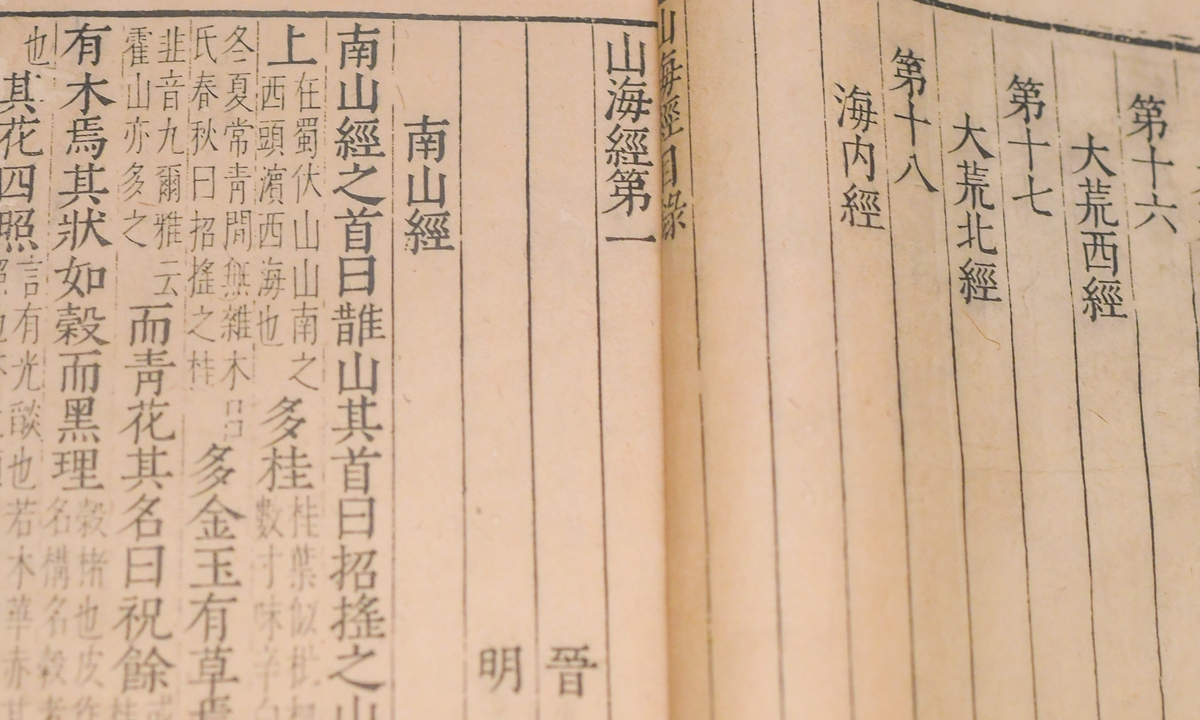
A copy of Shan Hai Jing on display at the National Museum of China in Beijing Photo: IC
Documentary
A Hazy Dream World from Ancient China is being shown on television from Sunday to Saturday.
The documentary series selects several legendary stories from the ancient Chinese literature work
Classic of Mountains and Rivers, or
Shan Hai Jing. Consisting of legends, geography, history, astronomy, animals, plants, medicine, religion, anthropology, oceanography and other subjects, the book is regarded as an encyclopedia of ancient China. It is generally believed that the book originated from folk literature that had been passed down orally, was written before the Warring States Period (475BC-221BC) and then continuously revised.
Taking "peculiarity" as its theme, the 8-episode series depicts several strange legendary figures, mythical animals and their related myths. The show combines cartoons, dances, shadow puppets as well as on-the-spot video shooting with the interpretation of experts to lead audiences into a fanciful world and help them understand the contents and style of the book by referring to other related historical resources, according to CCTV.
The documentary mainly discusses the most well-known sagas in the book in episodes such as "The Goddess Mends the Sky: Where I Came From," "Fuxi: Exploring the Way to the Sky," and "Zhulong: God of Time."
Specifically, ancient people's belief in the Goddess Nüwa, the creator of human beings in Chinese myth, may embody the period when humanity worshiped mother figures in its early period of history. The straight-forward-looking Zhulong somewhat resembles the image of a bronze mask discovered at the Sanxingdui Ruins in Southwest China's Sichuan Province, and it is believed to represent the eagerness of the ancestors of the Chinese people to break the limits of time and space.
Zhang Yiwu, professor at Peking University told the Global Times, "This documentary has made an interesting visualized illustration, given a complete introduction and an academic interpretation of this important Chinese literary work, which is of a special significance. It is also the CCTV's great effort to popularize the traditional Chinese culture."




